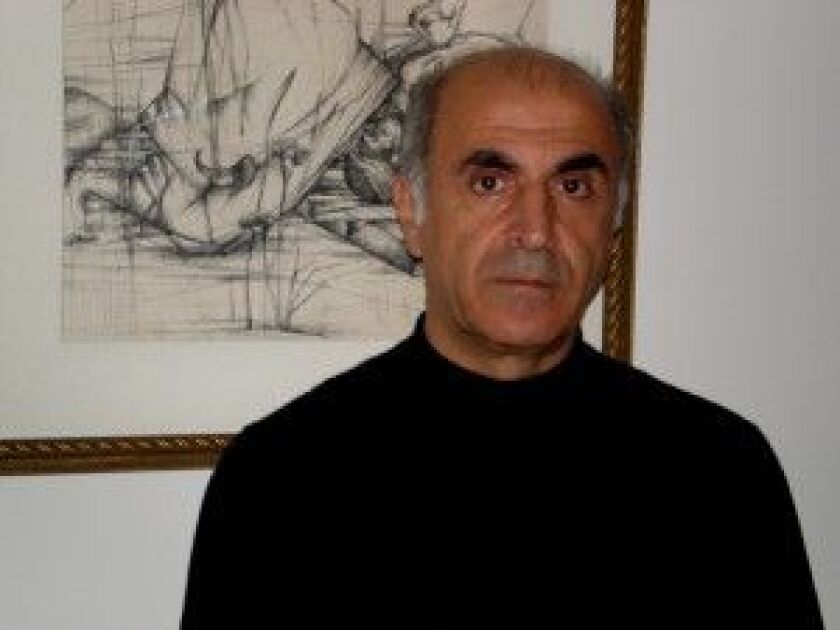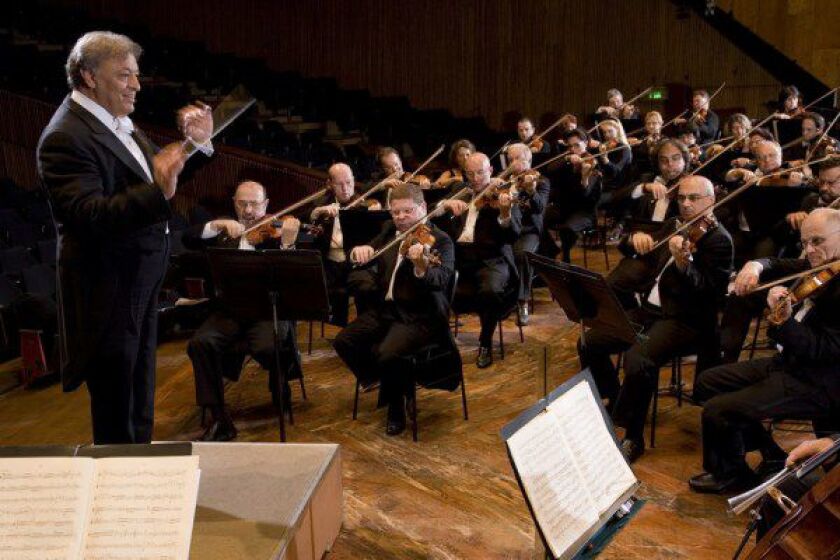It was in 1961 that Zubin Mehta — then in Vienna, and without work at the moment — got a call from the Israel Philharmonic. Could he fill in for Maestro Eugene Ormandy, renowned conductor of the Philadelphia Orchestra, who was suddenly indisposed?
As it turned out, it was the beginning of a beautiful, 46-year-long relationship.
Mehta, who was born into a Parsi family in Bombay (now Mumbai), India, became the Israel Philharmonic’s music advisor in 1968, was appointed as the orchestra’s first music director in 1977, and in 1981 was given the title of “Music Director for Life.” Along the way he also has served as music director and principal conductor of the New York Philharmonic (1978 – 1991), music director of the Bavarian State Orchestra, honorary conductor of the Munich Philharmonic, and chief conductor of the Teatro del Maggio Musicale in Florence, Italy (a post he continues to hold). But his connection with the Tel Aviv-based orchestra has never wavered.
The story of the Israel Philharmonic itself — which will visit Chicago’s Symphony Center for a single performance this Sunday evening — is equally dramatic, and dates from more than a decade before the establishment of the state of Israel in 1948.
ISRAEL PHILHARMONIC
When: Nov. 15 at 7 p.m.
Where: Symphony Center, 220 S. Michigan
Tickets: $51 – $175
Info: (312) 294-3000; www.cso.org
Founded as the Palestine Orchestra in 1936 by Bronislaw Huberman, a Polish-Jewish violinist, it came into being at a time when the Nazis were gaining power, and many Jewish musicians were being fired from European orchestras. Its inaugural concert took place on Dec. 26, 1936, and was conducted by Arturo Toscanini. During World War II, the orchestra performed 140 times for Allied soldiers, and at the end of the war it performed in recently liberated Belgium. In 1948, after the creation of the state of Israel, it was renamed the Israel Philharmonic Orchestra.
“This orchestra is the cultural flagship and ambassador of Israel,” said Mehta. “It holds a place in the arts much as the Nobel Prize-winners of Israel hold a place in the sciences.”
Among its many virtues, according to Mehta, is its flexibility.
“It can play Mozart beautifully, or bring out the polyphonic voices of a late Romantic like Brahms,” said Mehta, now 79. “And one great advantage of working with these musicians is that they all play chamber music, so they are constantly interpreting different styles of music for themselves.”
“Over the years the orchestra has changed, in part because of the infusion of the many Russian emigres who arrived in Israel since the 1970s. [The orchestra is now about 45 percent Russian.] They came with brilliant technical skills, and made the orchestra more virtuosic, and gradually they absorbed more of the Viennese school style. In an orchestra, change happens very mystically.”
For its program at Symphony Center, Mehta will lead the Israel Philharmonic in three very different works: Ravel’s stirring “La Valse”; Beethoven’s “Symphony No. 3” (“Eroica”), and “A Journey to the End of the Millennium,” a symphonic poem by Josef Bardanashvili, the 67-year-old Georgian-born composer who immigrated to Israel in 1995.
“This piece by Bardanashvili [currently composer-in-residence for the Israel Camerata in Jerusalem, and a faculty member of the Academy of Music at Tel-Aviv University] has become a favorite of ours,” said Mehta. “It’s a mix of Georgian folk tunes and old Hebrew songs — plaintive but also robust. And overall this program is a welcome change for us after a very strenuous tour throughout Europe in August and September that featured big works by Mahler and Bruckner. True, the Beethoven is a big work, too, but I could conduct it every day.”
The Israel Philharmonic’s U.S. tour has already made stops at Carnegie Hall in New York, and in San Francisco and Los Angeles, and will travel on to Cleveland and Dallas after Chicago.
“We thrive on touring, and have done more of it this year than usual,” said Mehta. “We spent last Christmas in China. Israel is a small country, but the orchestra has 26,000 subscribers, which is impressive.”
As for the Israel-India connection, Mehta noted: “The two countries have extremely good relations, especially in the field of agriculture. Israel’s drip irrigation system has been very important to India.”
Meanwhile, in December, 2016, there will be a notable cultural exchange between Chicago and Israel as the Chicago Symphony Orchestra’s music director, Riccardo Muti, heads to Tel Aviv for the Israel Philharmonic’s 80th anniversary celebrations. Muti will lead the very same program Toscanini did when he formally inaugurated the orchestra in 1936.








